People Spotlight: Meet Jay Anable
Our People Spotlight series gives you an inside look at our technical experts around the world. This week, we are highlighting a project manager from our Buildings + Places business in the United Kingdom and providing an insight into their inspiration and work.
Jay Anable joined AECOM in 2018 as a civil engineer. He is currently an associate project manager working in the defence sector in the North of England.
Tell us about what inspired you to join the industry
My passion for engineering has deep roots within my family. Growing up, I was surrounded by individuals who not only excelled in their respective engineering fields but also demonstrated a genuine love for the profession. My father, a dedicated scientist specializing in water distribution and quality, instilled in me a profound appreciation for the impact that engineering can have on essential aspects of our daily lives.
Additionally, my grandfather’s legacy as a mechanical engineer left an indelible mark on my understanding of the intricate workings of machinery and the importance of precision in design. His stories of overcoming engineering challenges and contributing to innovative solutions have been a constant source of inspiration for me.
My uncle’s adventurous career as a nuclear turbine engineer further fueled my fascination with the global reach and diverse applications of engineering. His experiences, traveling the world and working on cutting-edge technologies, illuminated the dynamic and ever-evolving nature of the field.
These familial influences, coupled with my inherent curiosity and passion for problem-solving, naturally steered me towards pursuing a career in engineering. I am excited to carry forward this family legacy, applying the knowledge and values passed down through generations to contribute meaningfully to the field and make a positive impact on society.
My passion for engineering has deep roots within my family. Growing up, I was surrounded by individuals who not only excelled in their respective engineering fields but also demonstrated a genuine love for the profession.”
What is your favorite AECOM project that you’ve worked on and why?
As the programme lead for the UK Ministry of Defence’s Overseas Estate planning since 2022, I have had the privilege of spearheading a project that not only allowed me to apply my engineering expertise but also provided a unique opportunity to contribute to the future infrastructure of His Majesty’s Government Armed Forces on a global scale.
The primary focus of this undertaking has been to deliver comprehensive master planning for the Estate, strategically envisioning and shaping the infrastructure for the next 25 years. This forward-thinking approach ensures that the facilities and resources supporting the country’s Armed Forces align with the evolving needs and challenges they may face in the coming decades.
One of the distinctive aspects of this role has been the extensive travel involved, taking me around the UK and to diverse locations such as the Falkland Islands, Gibraltar, Ascension Island and Oman. Working across such a broad spectrum of sites has provided invaluable insights into the unique challenges and opportunities presented by different geographic and geopolitical contexts.
Facilitating this extensive project has required effective collaboration with a multidisciplinary team. We’ve seamlessly integrated various expertise, ensuring a holistic approach that encompasses not only the engineering aspects but also factors in environmental sustainability, security considerations, and the specific operational needs of the Armed Forces.
We aim not just to create resilient and adaptable infrastructure but also to contribute to the broader strategic goals of His Majesty’s Government. It’s been a rewarding journey, aligning my passion for engineering with a commitment to enhancing the capabilities and preparedness of the Armed Forces across the globe.
One of the distinctive aspects of this role has been the extensive travel involved, taking me around the UK and to diverse locations such as the Falkland Islands, Gibraltar, Ascension Island and Oman. Working across such a broad spectrum of sites has provided invaluable insights into the unique challenges and opportunities presented by different geographic and geopolitical contexts.”
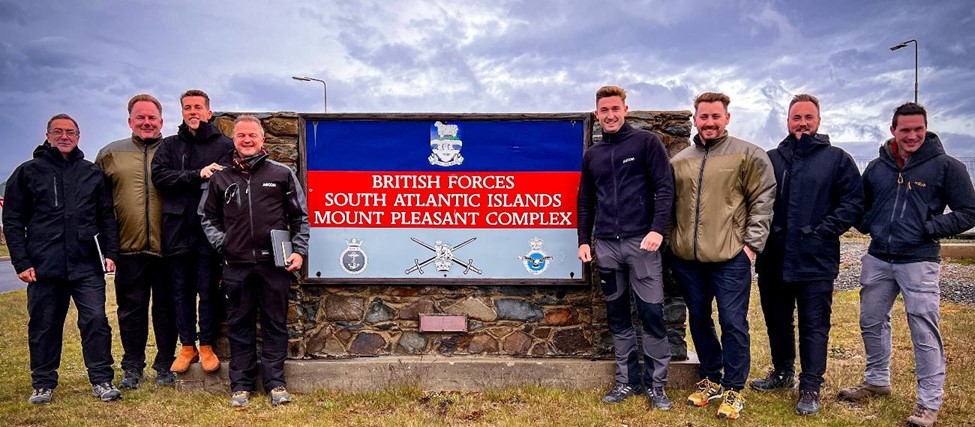
The deployment to remote locations, such as the Falkland Islands and Ascension Island, presented a unique set of challenges that extended beyond the professional realm, requiring a delicate balance between managing both my personal well-being and that of my team. Living, working and relaxing in close quarters with both my team and the client team added an extra layer of complexity to the already demanding environment.
The proximity in which we operated intensified the need for effective communication, conflict resolution, and a shared commitment to the mission’s success.
Personally, this experience became a crucible for my own mental resilience. The need to navigate the challenges of remote locations while simultaneously managing the dynamics within the team fostered a profound sense of adaptability and perseverance. It reinforced the importance of maintaining a positive mindset in the face of adversity.
Professionally, this deployment served as a catalyst for growth. The multifaceted challenges provided an invaluable opportunity to refine leadership skills, enhance interpersonal relationships, and develop strategies for fostering a cohesive team environment.
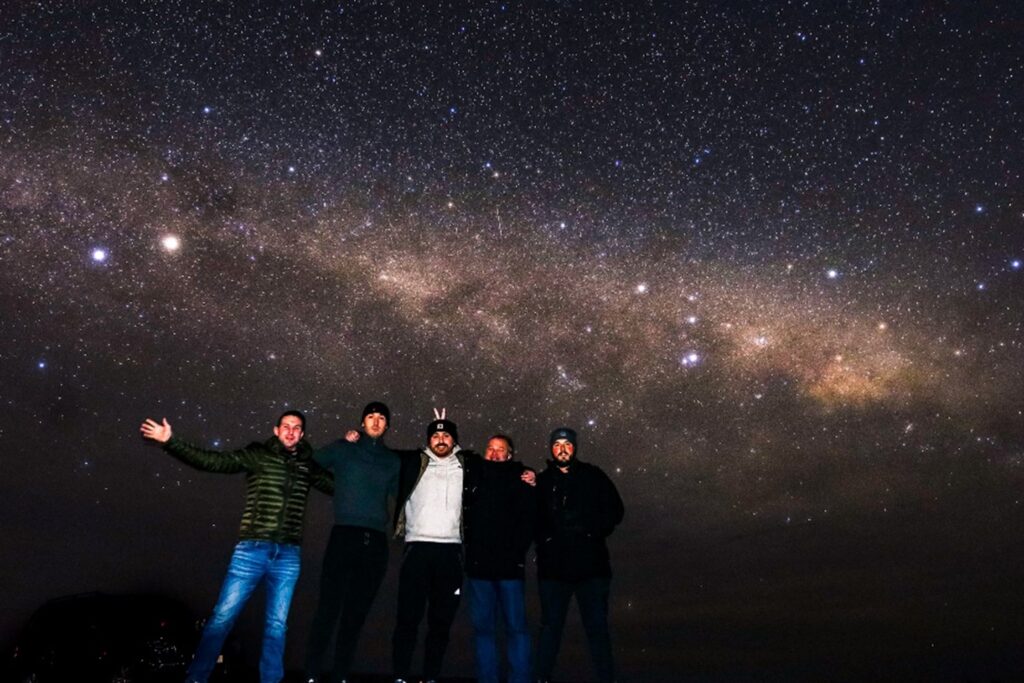
My career has taken me to the ends of the earth, experiences shared with the fantastic AECOM team 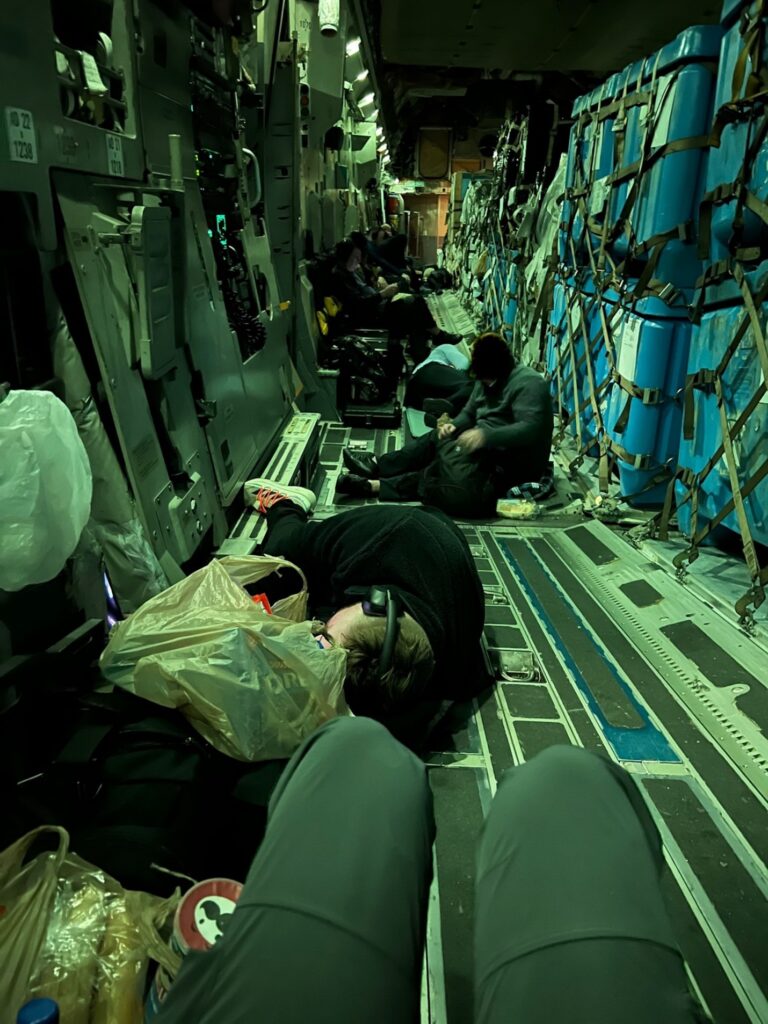
Transport was not often glamorous (Boeing C17 from Patrick’s AFB to Ascension Island) 
Commerson’s dolphins playing in the waves at Bertha’s Beach, Falkland Isalnds 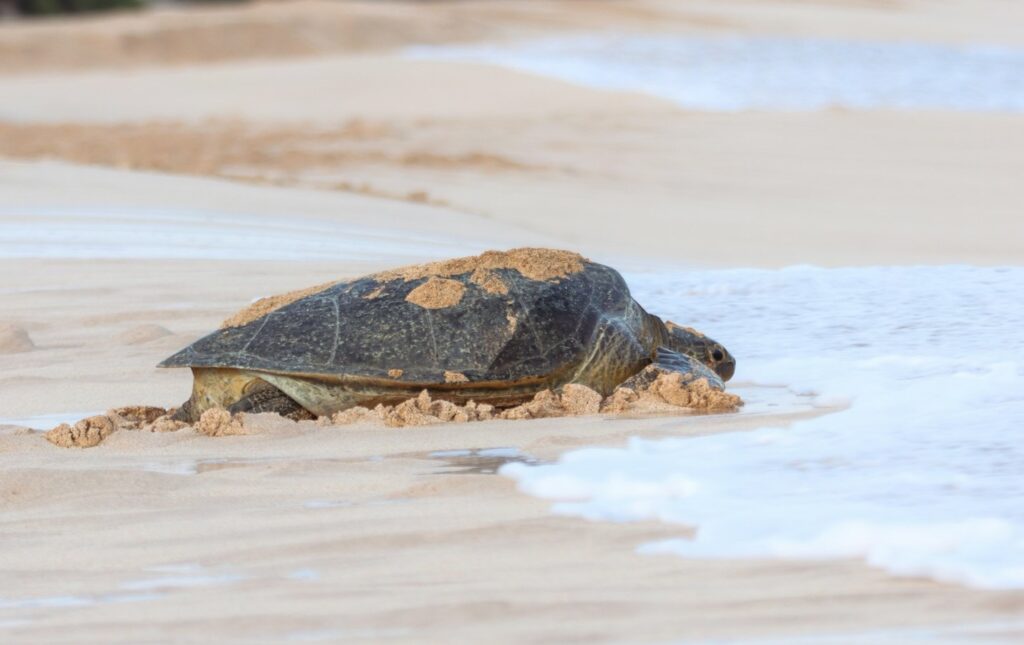
Watching turtles lay eggs on Asension Island 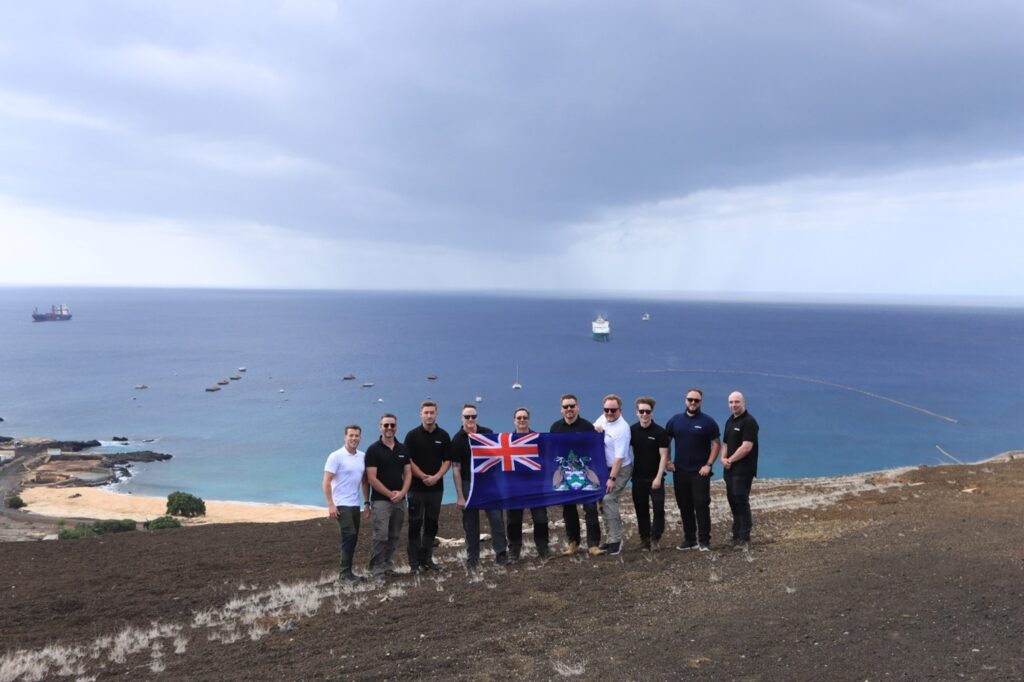
The team overlooking the Atlantic at George Town, Ascension Island
Tell us a story of how your work positively impacted the community.
Embarking on a project in the remote Falkland Island community, our team was driven by a commitment to improving the lived experiences of the residents. Having spent an extended period on the island, we intimately understood the moral and morale issues faced by the community. This deep understanding fueled our determination to create meaningful change, addressing challenges such as resource management, environmental conservation, cultural sensitivity, as well as tackling issues like isolation and loneliness, limited opportunities, dependency on external support, susceptibility to extreme weather events, and lack of amenities.
Recognizing the financial constraints, we set out to devise a master plan that would not only enhance the quality of life for the residents but also be economically sustainable for the funding organisation. A key insight we gained was that existing buildings could be remodeled rather than replaced.
Given the challenges posed by the remote location, the logistics of getting materials to the island were inherently slow. Opting for demolition in the case of new constructions would have further exacerbated the logistical complexities, requiring the removal of old materials from the site back to the UK and incurring more shipping costs. Understanding these challenges, our approach aimed to provide a comprehensive solution.
By opting for remodeling, we not only conserved resources but also streamlined the construction process, creating an economical and efficient estate. This approach ensured that the limited resources available could be maximized to support the Armed Forces servicemen and women effectively, addressing both immediate and long-term needs of the community.
This approach helped us effectively redirect the cost savings toward crucial community initiatives, addressing a wider range of needs and concerns and supporting the sustainability requirements through reuses of existing resources.
This deep understanding fueled our determination to create meaningful change, addressing challenges such as resource management, environmental conservation, cultural sensitivity, as well as tackling issues like isolation and loneliness, limited opportunities, dependency on external support, susceptibility to extreme weather events, and lack of amenities.”
Share a piece of career advice
I firmly believe in being the master of one’s own destiny, understanding that the outcomes we achieve are a direct result of the effort and determination we invest. Throughout my career, I have embraced the philosophy that the potential for success lies in the proactive pursuit of opportunities and the willingness to fight for them.
When encountering a project or sector that holds promise, I am driven to actively pursue it, recognizing that success often requires a combination of passion, perseverance and strategic effort. This proactive approach has allowed me to identify and capitalize on opportunities that may have otherwise been overlooked.
In my professional journey, I’ve learned that chasing down opportunities involves more than just identifying them. It requires a proactive stance, strategic planning and a willingness to navigate challenges. Whether it’s exploring new projects or venturing into sectors with untapped potential, the mindset of actively shaping one’s destiny has been a guiding principle.
This proactive philosophy has not only opened doors to new and exciting challenges but has also contributed significantly to my personal and professional growth. It’s a commitment to continuous improvement, seizing opportunities, and pushing boundaries to achieve meaningful and impactful results.






